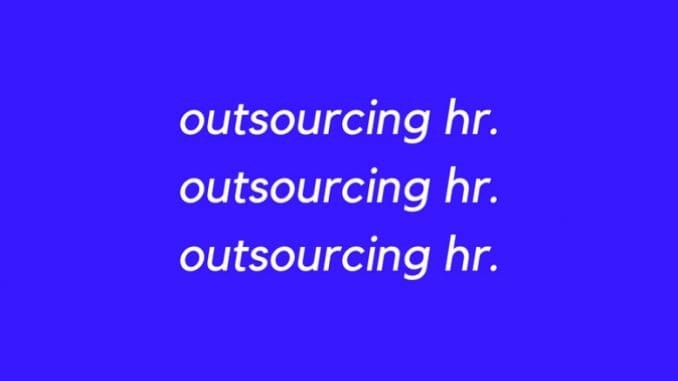
Hiring a full-time human resources person can be next to impossible in coffee, but that doesn’t mean there aren’t options. Here are some ways small companies can outsource their HR needs.
BY RJ JOSEPH
SPECIAL TO BARISTA MAGAZINE ONLINE
This piece is an accompaniment to our print article in the June + July 2018 issue of Barista Magazine, “HR For Small Coffee Companies: Know Your Options.”
People in coffee often think of human-resources management, or HR, as a program that is only accessible to larger coffee companies. But in actuality, good human-resources systems are not only doable for businesses of all sizes, they’re also crucial to their wellbeing. There are a ton of resources out there for even the smallest companies, and one of the best tools available to small companies is outsourcing parts of their HR systems. I talked with Liz Dean, regional manager of woman-centered coworking space The Wing, and Mark Hundley, general manager of Bolt Coffee in Providence, R.I., about the pros and cons of outsourcing HR.
Liz, who has extensive experience working with third-party HR through a previous employer, recommends it as an excellent option for small businesses. “The group I worked with, Atlantic Human Resources Advisors, basically allows you to have an HR person or team without necessarily adding a full-time employee onto your payroll, and there are a number of different tiers of service you can pay for depending on the needs of your business and its size.” She adds that the services are entirely advisory, so while the HR company can make suggestions, it’s on your business to decide if and how you implement policy changes. Similarly, they can advise you on how to become legally compliant, but it’s ultimately still your choice and responsibility.

The company Liz worked with had a fairly in-depth engagement of the resources offered compared to many other businesses that utilize third-party services. “The arrangement that my previous employer had was to have an HR person hold ‘office hours’ one day a week for a few hours, and that person was also available via phone or email to answer any questions. They also handled a lot of personnel issues, including things like terminations, mediation, and exit interviews,” Liz says.
Overall, Liz feels that these types of services are a great option for small businesses, and emphasizes that companies should not wait until they’re already dealing with issues to set up human-resource systems. “It can be a great cost-effective option for businesses who cannot afford to hire an HR person to ensure that they are in compliance with labor laws. But, I think this really only works for a smaller business that is only just beginning to scale their business. A lot of businesses wait too long to bring on HR, to the point where they have tons of issues, and by that time it’s almost too late to simply have an advisory, outsourced, part-time HR person because of the incredible amount of work that they have to do. People think that bringing HR on will solve their problems, but truly, HR is also something that needs to be set up to help prevent problems from arising in the first place.”
She also emphasizes a few other downsides to third-party HR groups. “These are not people who care about or are invested in your business. For some people, this may be considered an advantage because it makes it a lot easier to remove emotion from difficult situations like termination. They also juggle many different clients, so you don’t always get individualized attention; you are not always a priority to them.” Nevertheless, she recommends them as a great starting point, especially for small companies.
Mark Hundley, general manager for Bolt Coffee in Providence, R.I., currently works with third-party human resource group ADP. His company, though still very small, has had to keep up with rapid growth. Bolt Coffee started as a coffee cart run by two friends, then gained a brick-and-mortar location in 2014; Mark joined as the team opened a second location in 2016. “Our staff grew from three to 10 employees when this location opened. We currently have 13 employees, operate as a multi-roaster business, and are now expanding into roasting as well,” he says. Because of their rapid growth, they recognized a need for proper human-resources systems; dealing with the challenges of shifting local labor laws, they wanted to make sure they were in compliance and protecting both their business and the employees that constitute it.

When the group started working with ADP for payroll, ADP told them about the variety of service packages available to them. Currently, they work with an online resource system. “It provides every single document needed for new hires, role changes, job postings, hiring tool kits, termination protocols and documentations, record-keeping guides, job performance documents, background checks, and access to a, HR specialist for any other questions that we might have,” says Mark. Bolt also worked with ADP to get an employee handbook in place for their company. “The costs initially were high to set up the actual handbook,” says Mark. “There is a lot that goes into getting it formulated, and we spent a considerable amount of time with our specialist going through every law and policy and tailoring them to what we wanted to see happen within our business. Now that we have our handbook, we have changed plans to a lower weekly charge that provides access to all the documents and law changes that we need.”
Mark would definitely recommend these services to other small-business owners and managers. “I think if you are a business owner or manager that is focused on your staff and wanting to ensure that you are creating a positive and fair environment, it is completely worth the investment. Their resources and documents are super helpful and can be a great starting point for someone in a position of management who may not know how to handle different situations,” he says.
Liz wants to make sure that businesses acknowledge that they need HR, but also that HR isn’t a magic bullet. “People often seem to treat HR in one of two ways: either they think they don’t need it at all, or they think that it will be the solution to all of their problems. It’s important for businesses to understand that HR is necessary and to have a designated person or resource for HR, but also to understand exactly how it is going to impact their business. HR is not going to come in and magically solve all of the problems, and a toxic company culture will be toxic regardless of whether or not you have excellent HR because culture is something that starts from the top and exists throughout the company.”
Mark also acknowledges certain downsides of HR. “As helpful as it is, I would say the downside is that no matter how much time a specialist spends with you trying to get to know your business, I feel like it is truly difficult for them to learn the culture of your business like someone who is handling your HR internally.”

Overall, there are a great many pros to working with third-party HR groups to establish good systems and handle issues as they arise: It can be a cost-effective way to make sure you’re legally compliant, you can be selective about the services you need, and the people involved can bring a helpful objectivity to conflict resolution. The few cons to note are that a third-party HR group won’t have a personal investment in your company’s success, they won’t ever understand your business and culture as well as your internal management, and, because they tend to juggle a lot of clients at once, you may end up experiencing less personalized attention or waits to get issues resolved. However, third-party HR groups are an accessible, truly feasible way to support your small business and help it to scale healthfully.
To learn more about excellent HR solutions for small businesses, check out our print article in the June + July 2018 issue of Barista Magazine, “HR For Small Coffee Companies: Know Your Options.”
 ABOUT THE AUTHOR
ABOUT THE AUTHOR
RJ Joseph roasts coffee and writes a blog called Queer Cup in addition to her other adventures in coffee journalism. Her writing focuses primarily on equity, workers’ rights, and alternatives to the status quo. In her free time she loves cooking, reading, and being in Oakland, Calif. You can follow her on Instagram and Twitter.

